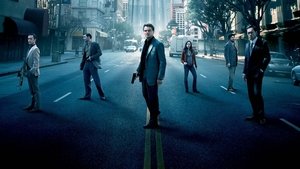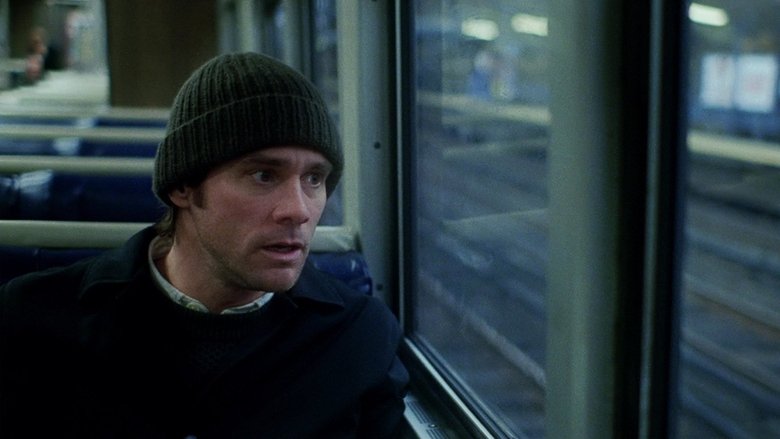Movies that will make you think: Best thought-provoking films
Explore the depths of cinema that challenge your perceptions and linger long after the credits roll. These films aren't just entertainment; they're experiences that provoke thought and spark conversation.



Some movies simply entertain, offering a pleasant escape from reality. But then there are those that demand more, films that burrow into your mind, forcing you to question everything you thought you knew.
This realm of thought-provoking cinema often intersects with science fiction, psychological thrillers, and even quiet dramas. Directors like Christopher Nolan, known for his intricate, non-linear narratives and explorations of complex concepts like time and dreams (Inception, Interstellar, The Prestige), have mastered this art. Similarly, the Wachowskis fundamentally altered how we perceive reality and simulation with The Matrix, a film whose philosophical underpinnings are still debated decades later.
Often, these films delve into the nature of consciousness (Eternal Sunshine of the Spotless Mind, Her, Ex Machina), the reliability of memory, or the very fabric of our perceived reality. Others tackle societal constructs or the human condition in unsettling ways (The Truman Show, Fight Club, The Lobster Kid).
What makes a film truly thought-provoking isn't just a twist ending or a complex plot, but its ability to introduce new ideas or present familiar ones in a way that resonates deeply, prompting introspection and discussion. They stay with you, encouraging rewatches and deeper analysis. Prepare to have your mind expanded.
13. Black Mirror: Bandersnatch (2018)
Black Mirror: Bandersnatch is a unique interactive film experience that puts the viewer directly in control of the narrative. As a young programmer in the 1980s adapting a complex fantasy novel into a video game, you are presented with choices that steer the story down various paths, leading to multiple possible endings. While the narrative itself can sometimes feel like a puzzle to solve rather than a traditional story, the meta-commentary on free will, control, and the illusion of choice is deeply thought-provoking. It's an innovative experiment in storytelling that uses its interactive format to directly engage the audience in the philosophical questions the film explores.

12. The Truman Show (1998)
The Truman Show is a wonderfully inventive and surprisingly poignant story about reality, authenticity, and the pervasive nature of media. Jim Carrey gives a career-best dramatic performance as Truman Burbank, a man who discovers his entire life has been a reality television show broadcast to the world since his birth. The film, directed by Peter Weir and written by Andrew Niccol, is a clever satire of media manipulation and voyeurism, but also a touching story about one man's quest for genuine freedom and self-discovery. It raises fascinating questions about control, privacy, and the nature of a constructed reality. It's a film that was ahead of its time and remains highly relevant today.

11. The Prestige (2006)
Christopher Nolan's The Prestige is a compelling tale of rivalry, obsession, and sacrifice set against the backdrop of turn-of-the-century London magicians. Hugh Jackman and Christian Bale play competing illusionists whose professional rivalry escalates into a dangerous and deadly game of one-upmanship. The film, structured like a magic trick itself with its misdirection and reveals, explores themes of identity, the cost of ambition, and the lengths people will go to for their art and revenge. The narrative jumps between timelines and perspectives, keeping the audience guessing until the very end. It's a sophisticated and intricately plotted film that makes you ponder the nature of secrets and the price of illusion.

10. Donnie Darko (2001)
Donnie Darko is a cult classic that defies easy categorization, blending science fiction, psychological thriller, and teen drama elements. Jake Gyllenhaal stars as a troubled teenager who survives a bizarre accident and begins to experience strange visions, including a man in a terrifying rabbit suit who tells him the world is ending. The film delves into complex themes like destiny, free will, time travel, and suburban alienation, leaving much open to interpretation. Its atmospheric soundtrack, unsettling tone, and cryptic narrative have earned it a dedicated following. It's a film that encourages multiple viewings and online theorizing, a truly unique and thought-provoking journey into teenage angst and cosmic mystery.

9. Fight Club (1999)
David Fincher's Fight Club is a visceral and darkly comedic critique of consumerism, masculinity, and modern alienation. Edward Norton plays an unnamed narrator suffering from insomnia who finds release in underground bare-knuckle fighting with the charismatic and anarchic Tyler Durden (Brad Pitt). The film's non-linear structure and unreliable narrator draw the audience into a confusing and increasingly dangerous world. It's a film that sparks intense discussion about its controversial themes and ambiguous message. The stylish cinematography and aggressive editing perfectly capture the narrator's fractured state of mind. It's a challenging film that forces you to question societal norms and the search for meaning in a material world.

8. Ex Machina (2015)
Ex Machina, directed by Alex Garland, is a tense and intelligent psychological thriller centered on artificial intelligence. A young programmer is invited to the secluded home of his eccentric billionaire boss to test a new AI housed in the body of a beautiful robot, Ava. What follows is a fascinating battle of wits and manipulation, raising questions about consciousness, deception, and the ethics of creating sentient beings. The film is contained mostly within a single location, allowing the sharp dialogue and compelling performances from Oscar Isaac, Domhnall Gleeson, and Alicia Vikander to drive the narrative and the philosophical debates. It's a chillingly plausible look at the near future of AI.

7. Her (2013)
Spike Jonze's Her is a tender, melancholic, and incredibly prescient look at love and connection in the digital age. Joaquin Phoenix stars as a lonely writer who falls in love with an artificial intelligence operating system, voiced by Scarlett Johansson. The film beautifully explores the nature of relationships, intimacy, and consciousness in a world where technology is increasingly integrated into our emotional lives. It asks whether a connection with an AI can be as real and meaningful as one with another human. The film's warm color palette and intimate cinematography create a sense of longing and vulnerability, making this speculative premise feel deeply human and relatable. It's a quiet film with big ideas about the future of love and technology.

6. Interstellar (2014)
Christopher Nolan ventures into the cosmos with Interstellar, a film that grounds its epic scale in deeply human emotion. Facing a dying Earth, a team of explorers travels through a wormhole in search of a new home for humanity. The film tackles complex scientific theories, particularly relativity and gravity, but uses them to explore profound themes like time, sacrifice, and the enduring power of love across vast distances. Matthew McConaughey delivers a powerful performance as the father torn between saving his family and saving humanity. The film features breathtaking visuals and a soaring score by Hans Zimmer that perfectly captures the awe and terror of space travel. It's a film that inspires wonder about the universe and makes you think about our place within it.

5. Blade Runner (1982)
Blade Runner, Ridley Scott's neo-noir masterpiece, is a visually stunning and philosophically rich exploration of what it means to be human. Set in a rain-soaked, dystopian Los Angeles of 2019 (a future now past us!), the film follows Rick Deckard (Harrison Ford), a detective hunting down synthetic humans known as replicants. The line between human and machine becomes increasingly blurred, forcing both the characters and the audience to question identity, consciousness, and empathy. The film's incredible production design, inspired by futuristic cityscapes and classic film noir, creates an atmosphere that is both oppressive and captivating. Its influence on subsequent science fiction cannot be overstated, and debates about Deckard's own nature continue to this day.

4. Arrival (2016)
Denis Villeneuve's Arrival is a science fiction film built on empathy and understanding, focusing not on laser battles but on communication. When mysterious alien spacecraft appear across the globe, a linguist (Amy Adams, in a deeply moving performance) is recruited to decipher their language. The film cleverly uses the process of learning a new language to explore complex ideas about perception, time, and the very structure of thought. It's a quiet, contemplative, yet utterly gripping story that challenges conventional sci-fi tropes and offers a hopeful, albeit complex, vision of humanity's potential response to the unknown. The film's unique narrative structure mirrors the themes it explores, making it a truly unique and profound cinematic experience.

3. Inception (2010)
Christopher Nolan takes audiences on a mind-bending heist into the human subconscious with Inception. This is a film built on layers, both literally within the dreamscapes and figuratively in its intricate plot. Leonardo DiCaprio leads an ensemble cast as a skilled extractor who steals secrets from people's dreams, but is tasked with the reverse: implanting an idea. The film masterfully visualizes abstract concepts like guilt, desire, and the power of suggestion through stunning, Escher-like architecture and physics-defying action sequences. Nolan's commitment to practical effects, even in such a fantastical setting, adds a tangible weight to the dream world. It's a puzzle box of a movie that rewards attention to detail and sparks endless debate about its ambiguous ending and the nature of reality itself.

2. The Matrix (1999)
Few films have reshaped cinema and popular culture as fundamentally as The Matrix. The Wachowskis' groundbreaking sci-fi actioner isn't just a feast of innovative special effects; it's a potent philosophical inquiry wrapped in a kung fu wire-fu spectacle. What is reality? Are we truly free? The film dives deep into concepts of simulation, control, and awakening, drawing inspiration from philosophy, religion, and cyberpunk literature. Keanu Reeves' portrayal of Neo, the everyman who discovers his world is a lie, is iconic. The film's visual style, particularly the slow-motion 'bullet time' effect, was revolutionary and instantly became a staple in subsequent action movies. It's a film that demands rewatching, each time revealing new layers to its complex narrative and enduring themes.

1. Eternal Sunshine of the Spotless Mind (2004)
Prepare for a journey into the architecture of the human heart and mind with Eternal Sunshine of the Spotless Mind. Directed by the visionary Michel Gondry and written by Charlie Kaufman, this film is a truly original exploration of love, loss, and the power of memory. It asks a profound question: if you could erase the painful memories of a failed relationship, would you? The non-linear narrative beautifully reflects the fractured nature of memory itself, weaving together moments of joy and heartbreak. Kate Winslet and Jim Carrey deliver career-defining performances, demonstrating incredible depth and vulnerability in roles unlike any they had played before. It's a visually inventive and emotionally resonant masterpiece that will stay with you long after the credits roll, making you ponder the true value of even our most painful experiences.

